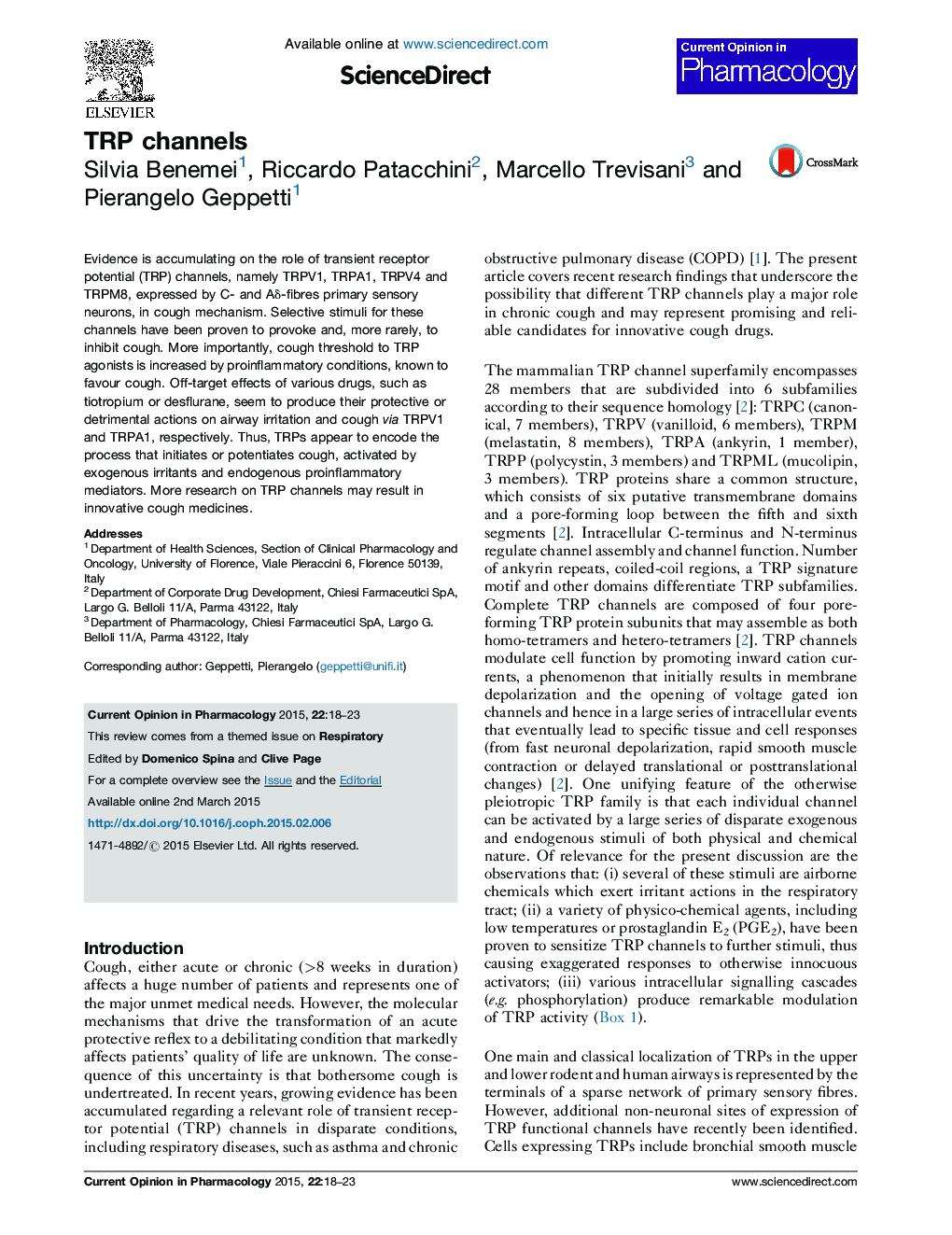| کد مقاله | کد نشریه | سال انتشار | مقاله انگلیسی | نسخه تمام متن |
|---|---|---|---|---|
| 2529837 | 1558126 | 2015 | 6 صفحه PDF | دانلود رایگان |

• Recent findings further support specific roles of TRP channels in cough.
• Preclinical and clinical approaches are used to investigate TRP channels.
• Neuronal and non-neuronal TRP channels can be involved.
• Data strengthen the protussive role of activation of both TRPV1 and TRPA1.
• Data underline the possible antitussive activity of TRPM8.
Evidence is accumulating on the role of transient receptor potential (TRP) channels, namely TRPV1, TRPA1, TRPV4 and TRPM8, expressed by C- and Aδ-fibres primary sensory neurons, in cough mechanism. Selective stimuli for these channels have been proven to provoke and, more rarely, to inhibit cough. More importantly, cough threshold to TRP agonists is increased by proinflammatory conditions, known to favour cough. Off-target effects of various drugs, such as tiotropium or desflurane, seem to produce their protective or detrimental actions on airway irritation and cough via TRPV1 and TRPA1, respectively. Thus, TRPs appear to encode the process that initiates or potentiates cough, activated by exogenous irritants and endogenous proinflammatory mediators. More research on TRP channels may result in innovative cough medicines.
Figure optionsDownload high-quality image (107 K)Download as PowerPoint slide
Journal: Current Opinion in Pharmacology - Volume 22, June 2015, Pages 18–23